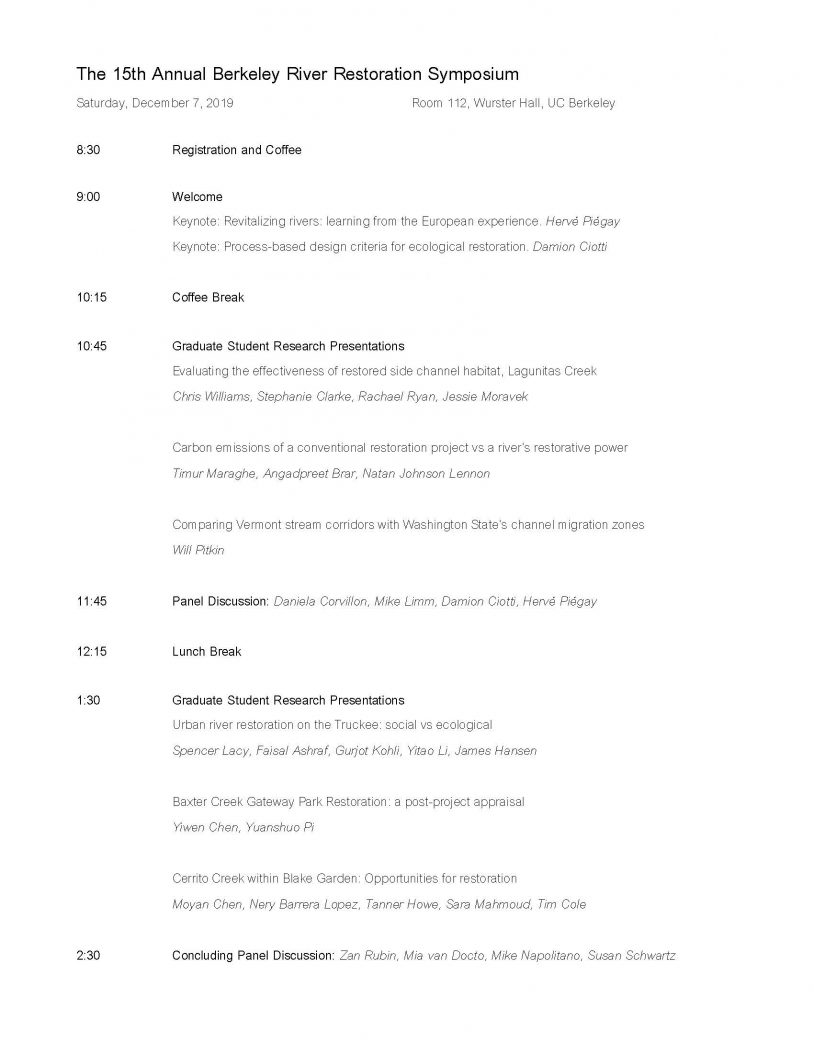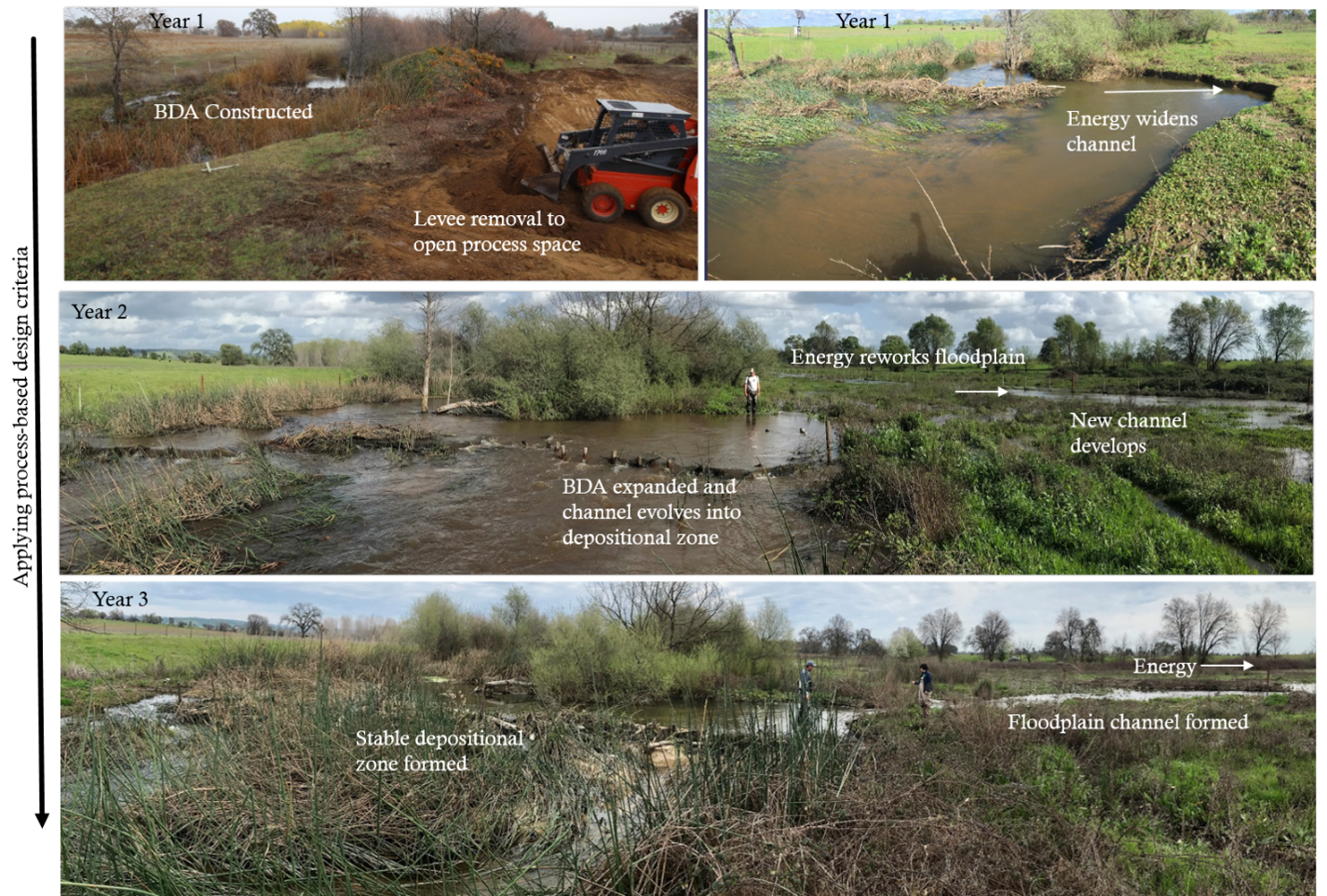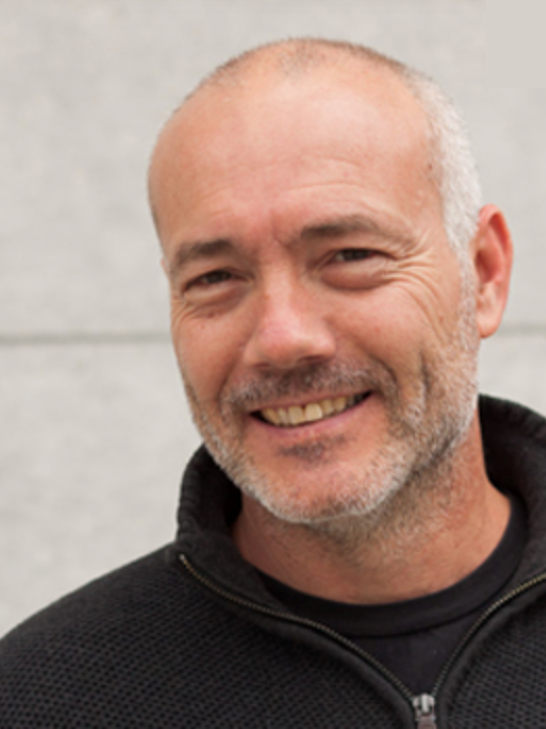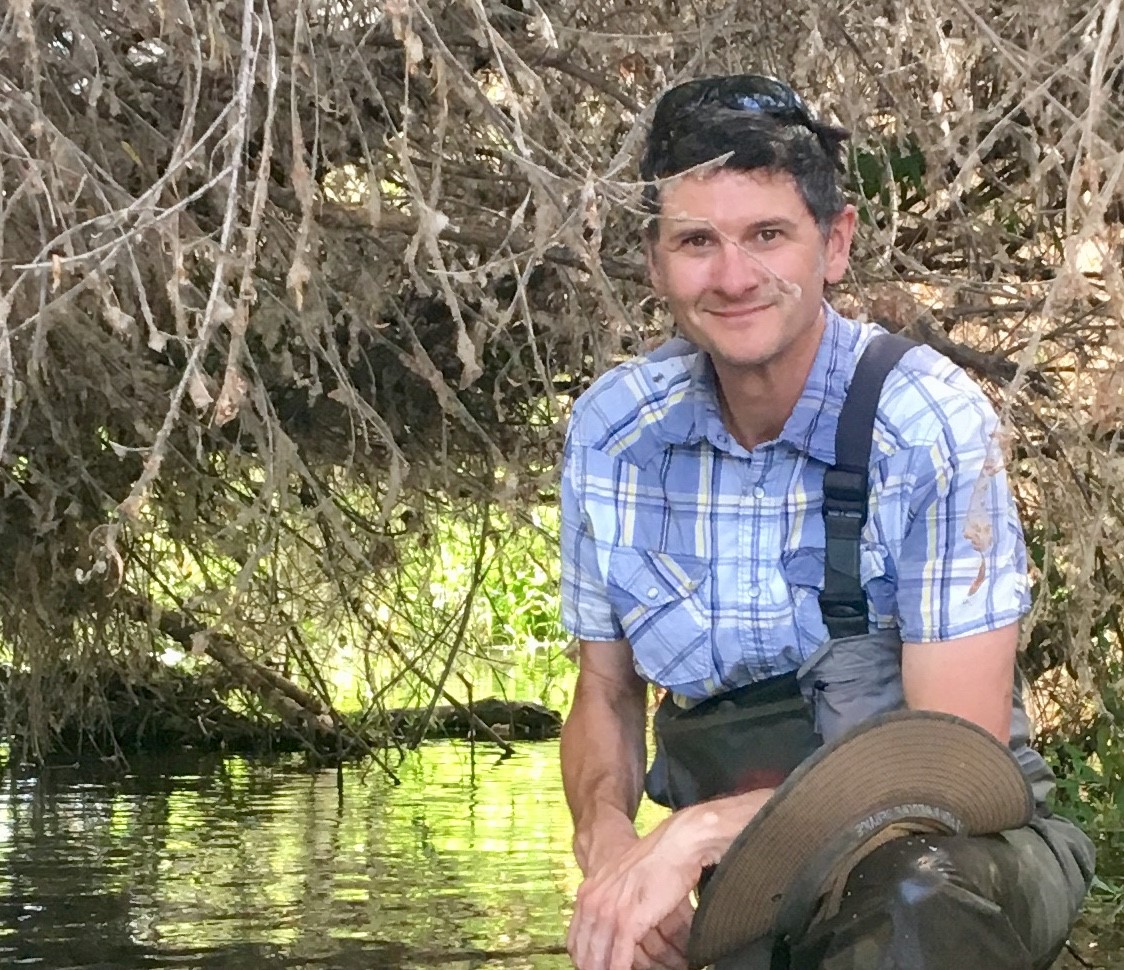How can we restore true geomorphic and ecological processes in rivers? You are invited to the 15th Annual Berkeley River Restoration Symposium, Saturday 7 December 2019, when these questions will be addressed by keynote speakers Hervé Piégay and Damion Ciotti.
Keynote Presentations
Keynote Speakers
Panelists
Daniela Corvillon is an environmental planner and UC Berkeley grad focusing on design and restoration of natural ecological functions at the interface of human and wild space. At John Northmore Roberts & Associates (Berkeley), she plans, designs, & manages various-scale projects that integrate human uses into natural areas, and restore natural functions on urban environment, working with the National Park Service, NGOs, cities, and private clients. Daniela continues to develop and promote integrated solutions to environmental and social problems in marginal high-need areas of Chile and Cuba, including a wastewater wetland and river restoration project in Palma Soriano, Cuba.
Mia von Docto works as a Conservation Hydrologist for Trout Unlimited. Her work focuses on coastal hydrology, ecological flow thresholds, conservation planning, coho salmon and steelhead trout recovery and translating findings into recovery prioritization actions and regional polices. She specializes in using a combination of field-based data, numerical modeling and geospatial tools to characterize hydrologic process, land-use and human water needs.
Mike Limm is a Professor of Biological Science at Holy Names University. He received his Ph.D. from UC Berkeley in aquatic ecology. His research focuses on hydrologic and hydraulic controls of food webs, carbon and nutrient pathways, and the influence of food web composition on ecosystem processes, conducting research in environments including the northern California Coast Range and Sierra Nevada.
Mike Napolitano is an engineering geologist with the San Francisco Bay Regional Water Quality Control Board. He has been instrumental in supporting and guiding restoration efforts along the Napa River and its tributaries.
Zan Rubin is a Senior Geomorphologist at Balance Hydrologics in Berkeley where he studies of sediment transport, water quality, channel evolution, and restoration effectiveness. He designs stream and wetland restoration projects, with several active projects on planning resilient infrastructure-river crossings. He received his Ph.D. in 2015 with Professor Kondolf with several research projects including the cumulative impacts of hydropower development in the Mekong basin and evaluating the effectiveness of riparian restoration along the lower Colorado River.
Susan Schwartz graduated from UC Berkeley in 1965. She was a newspaper reporter and editor in Fairbanks (AK), Seattle, Akron, and Miami, taught science writing, and wrote three minor guides on natural history before returning to Berkeley to raise a family. She became involved with Friends of Five Creeks and has co-headed or headed the all-volunteer group for 20 years. Friends of Five Creeks works with urban nature in many ways, including a lecture series, walks, other events, publications, interpretive signs, mapping and monitoring, and seeking to influence government. Most of its effort is hands-on, generally in areas neglected or abandoned by public agencies, including after previous “restorations.”
Graduate Student Presentations
Graduate student research presentations include a comparison of a conventional river restoration project heavily dependent on external energy sources (diesel fuel) with the energy exerted on the ‘restored’ reach by a natural flood; evaluation of a side-channel restoration for salmon on Lagunitas Creek; the Vermont and Washington State programs to set aside river corridors; and post-project appraisals of river restoration projects on the Truckee River, Reno, and Cerrito and Baxter Creeks in the San Francisco Bay region. A panel of experienced practitioners and researchers provides perspective on themes arising in the presentations.
Schedule

This symposium is open to the public without charge. Please pre-register here. The symposium is sponsored by the UC Berkeley Department of Landscape Architecture & Environmental Planning, and the Institute of International Studies Interdisciplinary Faculty Seminar Water Management: Past and Future Adaptation.



